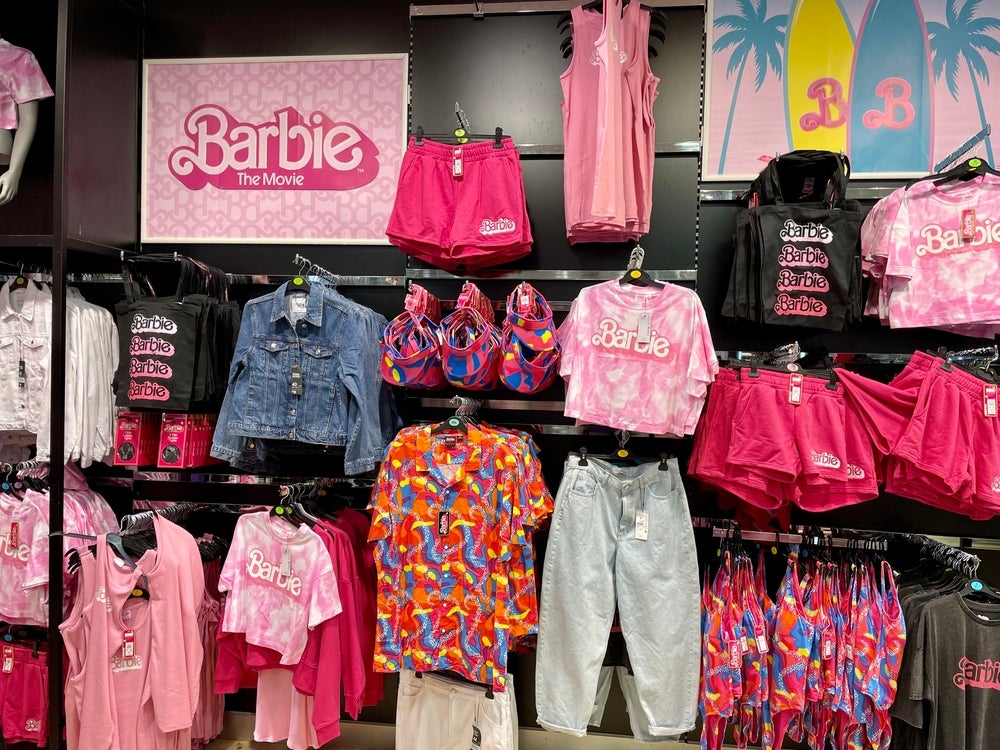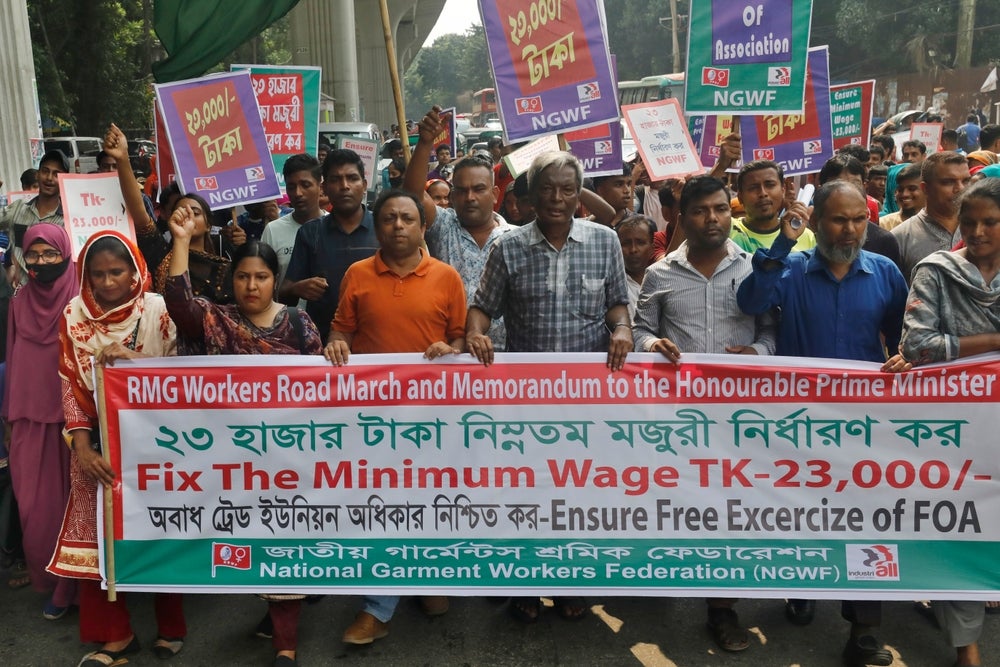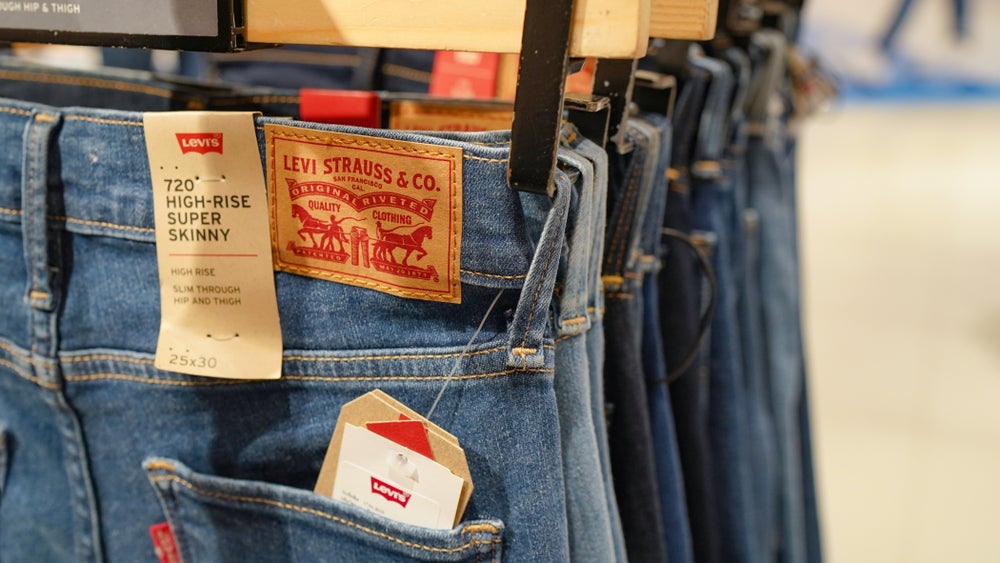
Unlike many other major apparel firms, value fashion chain Primark chooses not to openly set targets for its sustainability and ethical commitments, but instead “just get on and do it,” as Katharine Stewart, Primark’s director of ethical trade, tells just-style. Yet in recent years the retailer has started to open up about its work to engage more closely with its supply chain: in particular, turning its focus to ensuring all the cotton in its products is sourced sustainably.
“We’re just trying to make sure we’re doing the right thing, whether it’s through the auditing of our factories, and the training and remediation we have in place for those, or whether it’s what’s happening further down the chain in the cotton fields,” says Stewart.
Owned by Associated British Foods (ABF), Primark has become one of the UK’s major retail success stories of the last decade. With a 14.3% share of the British clothing market, it is just 0.5 points off becoming the second largest player behind Marks & Spencer.
“We’re a volume retailer and we want to make sure we’re doing things in the right way”
And with its full-year results due to be published early next month, Primark sales are tipped for a double-digit rise thanks to an increase in retail selling space – 30 new stores opened across nine countries in the last year – and 1% growth in like-for-like sales.
However, unlike many other major apparel firms, the company chooses not to openly set targets for it sustainability and ethical commitments, but instead “just get on and do it.” Yet in recent years the retailer has started to open up about its work to engage closer with its supply chain: in particular, turning its focus to ensuring all the cotton in its products is sourced sustainably.
See Also:
Cotton programme
A key driver to helping achieve this is its own cotton programme launched in Gujarat, India’s biggest cotton and cottonseed producing state, just over four years ago. Combining the expertise of agricultural expert CottonConnect and the Self Employed Women’s Association (SEWA), it offers on-the-ground training sessions and in-field training on farming techniques, seed selection, sowing, soil, water, pesticide management, picking, fibre quality, grading and storage.
How well do you really know your competitors?
Access the most comprehensive Company Profiles on the market, powered by GlobalData. Save hours of research. Gain competitive edge.

Thank you!
Your download email will arrive shortly
Not ready to buy yet? Download a free sample
We are confident about the unique quality of our Company Profiles. However, we want you to make the most beneficial decision for your business, so we offer a free sample that you can download by submitting the below form
By GlobalDataPrimark challenges critics with India cotton initiative
“We’re a volume retailer and we want to make sure we’re doing things in the right way and minimise the impact we’re having in relation to both social and environmental issues,” Stewart explains.
The first three years of the programme, she says, have exceeded Primark’s expectations. The 1,251 farmers pushed profits up more than two-fold, while reducing chemical pesticide and fertiliser use. Last year, more women joined the project, bring the total number of farmers enrolled to 5,000.
Many have used the extra income to invest in education for their children, extend their homes or buy agricultural equipment, Stewart explains.
The cotton produced by the farmers has also made its way into 16 of Primark’s pyjama designs – the value clothing retailer’s first line of clothing made using 100% sustainable cotton, and the first in which it is able to track its cotton through the supply chain from farm to store. And with zero cost implications.
Primark launches 100% sustainable cotton pyjama line
“Cotton is the biggest fibre used in our products. Only 12% of cotton produced around the world is currently classed as sustainable,” Stewart says, explaining the motivation behind the project. “Good progress has been made, but it remains difficult to track cotton at every stage of the supply chain. We wanted to gain first-hand insights into the challenges of growing sustainable cotton and be able to track it from farm to store.”
Until now, only a “small percentage” of the cotton produced by the programme has made its way into Primark’s clothing – an amount the retailer is reluctant to disclose – with the majority destined for the domestic supply chain and 20% exported.
But Stewart says the company would like to increase this, and has plans to roll it out to more pyjama designs – if it can overcome one major challenge.
“We are working on scaling up the volume of the sustainable cotton from the programme used in our supply chain, but we’ll first need to be able to guarantee we have enough cotton to meet demand,” Stewart explains.
“We want to demonstrate we’re confident the cotton we’re talking about is the cotton being used in our product”
“We are addressing this challenge by investing further in the programme and equipping more farmers with the skills and training they need to grow cotton sustainably, so we can begin to step closer to our long-term ambition to ensure all the cotton used in our supply chain is sustainably sourced.”
Full traceability
Starting with a significant high volume product line like pyjamas is a smart move, and has served to offer a glimpse into Primark’s cotton supply chain and its desire to reach full traceability.
This, Stewart says, is absolutely key for the retail chain, as it looks to invest in new technology as the programme scales up in order to improve on its current manual traceability approach.
“We have been working hard over the past 18 months with farmers from the programme, CottonConnect, SEWA and our suppliers to make sure we can track cotton from participating farmers throughout our supply chain. Our programme uses CottonConnect’s REEL Cotton Code of Conduct to verify farm level activity. We also have a robust process in place to trace the cotton from farm into manufacturing.”
Stewart says Primark will also at some point consider communicating to the consumer the work it is doing in India.
“As with everything, we’ll want to demonstrate we’re confident the cotton we’re talking about is the cotton being used in our product.”
That transparency, however, hasn’t yet stretched to the disclosure of Primark’s global supplier list, and is unlikely to. As a growing number of brands and retailers cave in to industry pressure to publish the names and locations of the factories that manufacture their garments, Primark is standing firm.
“We’ve put a lot of investment into what we’re doing and we want to protect that,” Stewart says. “We are sharing our list where it’s appropriate to do so. Through the Ethical Trading Initiative (ETI) we share our supplier list, and through the Accord on Fire and Building Safety in Bangladesh we share our entire list. We do it where it makes sense, working collaboratively. We have a country of origin in all of our clothes, so that is clear.”
The work Primark is doing is being guided by a rapidly growing ethics team that has now hit 90, and is led by Stewart. The “experts” are spread across Primark’s key sourcing countries, and are “critical” to the retailer’s work with its suppliers and their factories, Stewart says, offering an example.
“They are responsible for explaining our standards to prospective suppliers and factories and carrying out our formal audits that allow us a detailed picture of working conditions.”
But while the size of the team has proved an enormous asset to the business, Stewart admits it brings its challenges.
“It can sometimes be difficult to stay connected to every single one of my team and, given the amount of travel required in my role, I often wish I could spend more time working alongside those on the ground.”
Collaboration
Primark’s initiative with CottonConnect and SEWA is just one of the partnerships it has in place as part of its wider work on ethics and sustainability.
It was the first UK retailer to sign the Accord on Fire and Building Safety in Bangladesh, and has joined forces with the UK’s Department for International Development (DfID) on a number of projects, such as focusing on women’s economic empowerment, market development, and disaster response in Primark’s five key sourcing markets – Bangladesh, Pakistan, Myanmar, Ethiopia and India.
There is also the HERproject, on which Primark has partnered with consultancy Business for Social Responsibility (BSR) since 2011 to provide healthcare and health education to women working in its supplier factories.
Collaboration has become an increasingly important tool within the apparel industry in tackling sustainability and ethical issues within the global supply chain. Stewart says this can be narrowed down to sectoral issues.
“For example, on wages, we’re part of an initiative called ACT [Action, Collaboration, Transformation] that is a collaboration of 16 big brands, and IndustriAll Global Union. It is focused on three areas and one of the key areas is working with governments, stakeholders, and trade associations to lobby and advocate for better collective bargaining agreements, and better negotiation of wages. It’s in it’s early days, but in some of the early activity around Cambodia we’re seeing it was one of the factors that helped increase the minimum wage there.”
“We have to ensure the employees are in decent workplaces”
“That collective voice and that collective communication around what we want is going to make a huge difference. So if you are going to influence wages sectorially, you have got to do it at that wider level.”
The challenge, however, is the sheer scale at which it needs to be done, Stewart explains.
“If we take our first tier factories alone, that’s 700,000 workers, so that’s a lot of people not dependent wholly on Primark. We know with those factories, going in to do audits, that 98% of the factories are being shown to other people, but we have to ensure the employees are in decent workplaces. That’s important for the whole business.”
In April last year, Primark doubled the number of audits at its supplier factories in Turkey – less than a month after Next and H&M admitted to finding Syrian refugee children working in their supplier factories in the country. Turkey is home to around 100 of the 1,700 factories that Primark uses globally.
On average, the retailer carries out around 3,000 audits per year across its global supply chain, and the ethics team now includes a dedicated environmental sustainability team, which works with Primark’s suppliers to implement the retailer’s Environmental Sustainability Programme.
The programme aims to ensure strict chemical management requirements for its products, reduce the environmental impact of textile manufacturing processes, and introduce sustainable farming methods for cotton.
As for the future, Stewart says it’s about continuing Primark’s collaborative efforts to really drive change across the industry.
“That will be what will change the industry really. Our industry is the poster child of supply chains, probably because it’s not particularly capital intensive to get started. So it will be those wider initiatives that will drive the way forward.”







